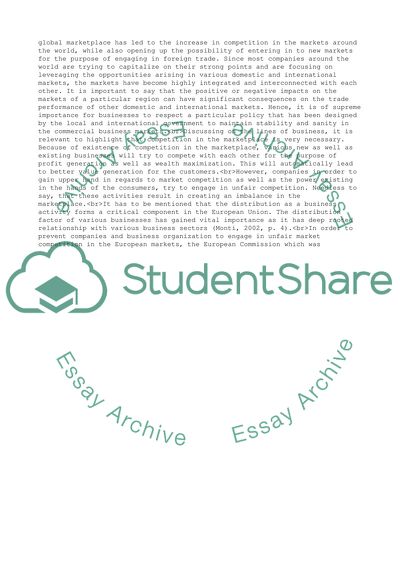Cite this document
(European Business Environment- Conduct a comparative analysis of two Essay, n.d.)
European Business Environment- Conduct a comparative analysis of two Essay. https://studentshare.org/business/1796265-european-business-environment-conduct-a-comparative-analysis-of-two-article-101-cases
European Business Environment- Conduct a comparative analysis of two Essay. https://studentshare.org/business/1796265-european-business-environment-conduct-a-comparative-analysis-of-two-article-101-cases
(European Business Environment- Conduct a Comparative Analysis of Two Essay)
European Business Environment- Conduct a Comparative Analysis of Two Essay. https://studentshare.org/business/1796265-european-business-environment-conduct-a-comparative-analysis-of-two-article-101-cases.
European Business Environment- Conduct a Comparative Analysis of Two Essay. https://studentshare.org/business/1796265-european-business-environment-conduct-a-comparative-analysis-of-two-article-101-cases.
“European Business Environment- Conduct a Comparative Analysis of Two Essay”. https://studentshare.org/business/1796265-european-business-environment-conduct-a-comparative-analysis-of-two-article-101-cases.


